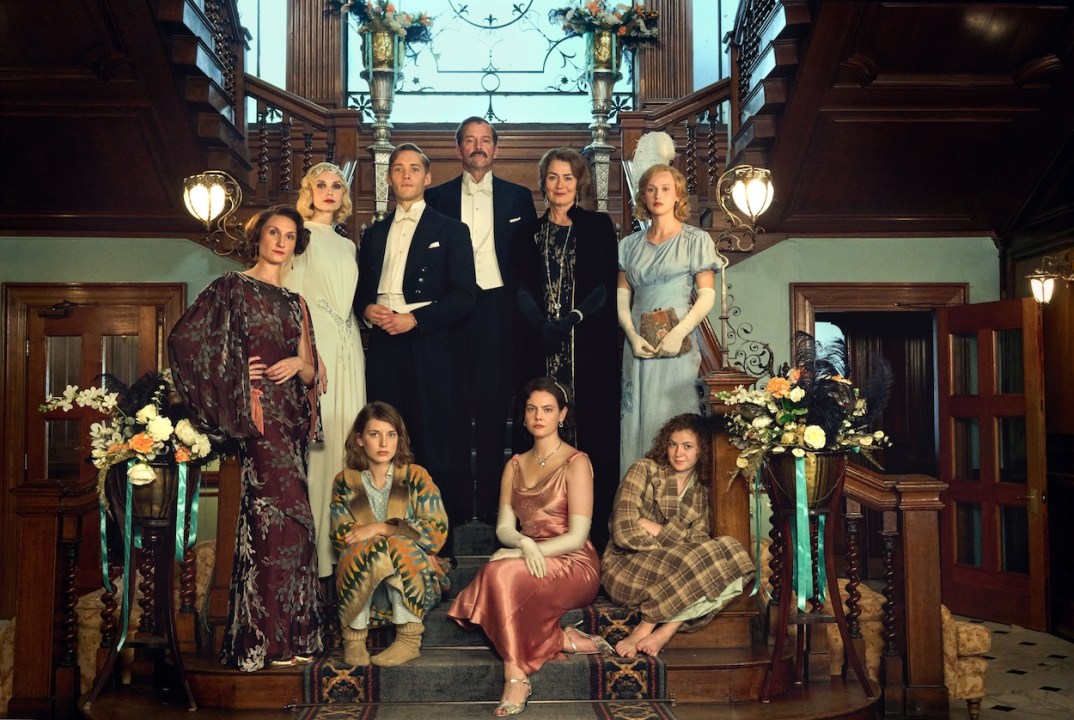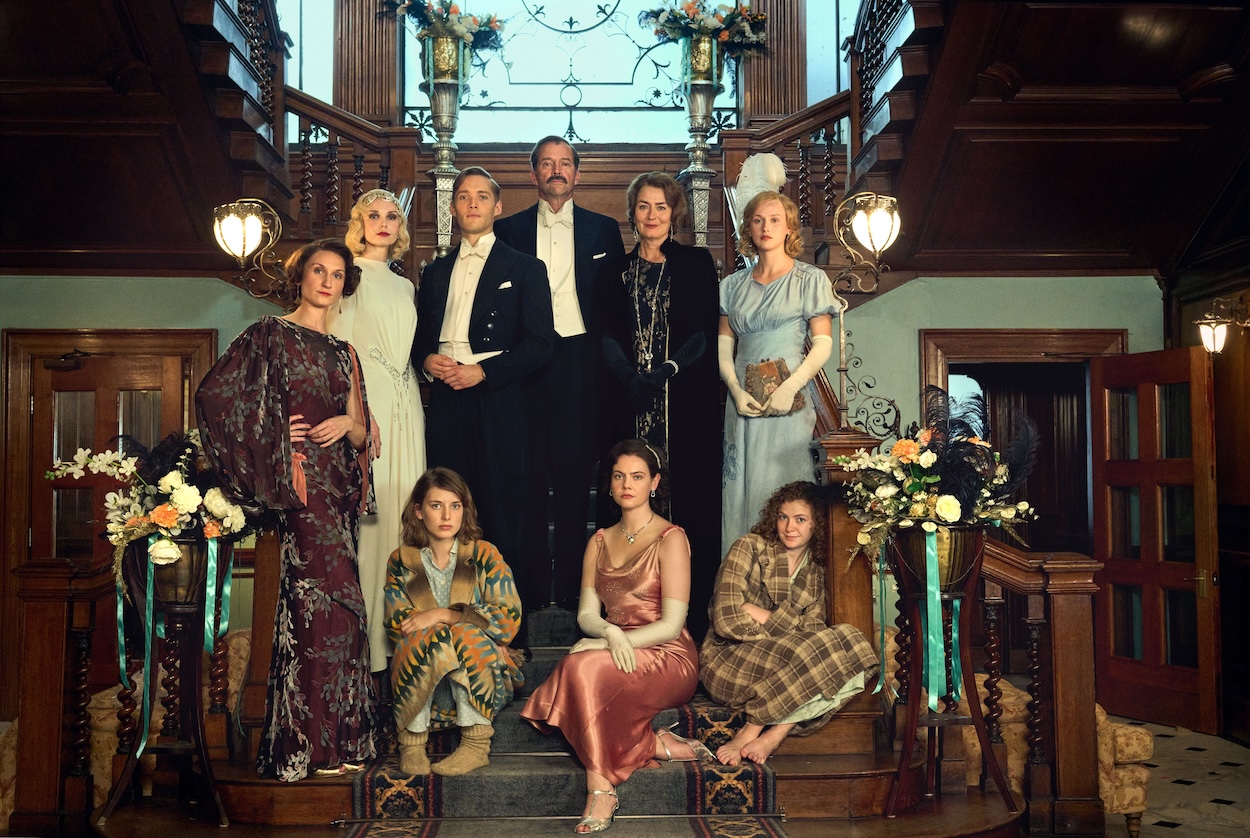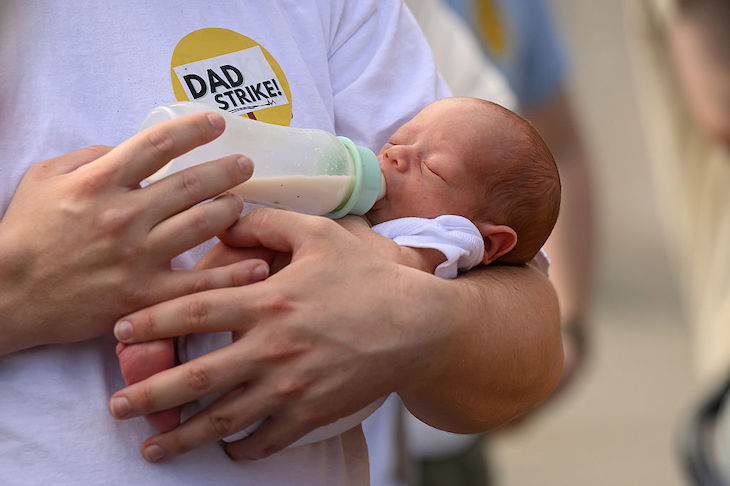In her 1954 essay ‘The English Aristocracy’, the author Nancy Mitford popularised the descriptions ‘U’, i.e. upper-class or aristocratic, and ‘non-U’, to denote household terms. Although she did not coin the phrase (that credit belongs to the otherwise forgotten linguist Alan S.C. Ross), she brought it to wider public attention. When her friends John Betjeman and Evelyn Waugh added their own contributions, the result was the 1956 book Noblesse Oblige: An Enquiry Into the Identifiable Characteristics of the English Aristocracy.
Language termed ‘U’ included ‘loo’ rather than ‘toilet’, ‘vegetables’ rather than ‘greens’, and saying ‘what?’ rather than the apparently more polite ‘pardon?’ Although a few examples have now dated – I can’t imagine anyone unaffected saying ‘looking-glass’ instead of mirror – it’s undeniably true that Mitford’s once-U, and therefore exclusive, language has proved more enduring than the non-U equivalent. Sofas are ubiquitous in the homes of England’s middle classes, rather than settees or couches, and most would refer to a ‘dinner jacket’ rather than a ‘dress suit’.
If the average middle-class Englishman speaks in a more elevated – and indeed pleasant – style of language than we might otherwise have done, they owe a significant debt to Nancy Mitford, who is also responsible for two of the funniest 20th-century British novels, The Pursuit of Love and Love in a Cold Climate. This makes the new drama about Nancy and her family – the unimaginatively titled Outrageous – a disappointment, swapping the Mitfords’s love of language and wit for something decidedly prosaic.
If you’ve seen the vast advertisements on billboards, you may be aware of the show, but it’s essentially standard-issue posh drama. It purports to be about the Mitford family, once excellently described by Ben Macintyre as ‘Diana the Fascist, Jessica the communist, Unity the Hitler-lover, Nancy the novelist, Deborah the duchess and Pamela the unobtrusive poultry connoisseur’ – although Macintyre omits Tom, the sole boy, who died fighting the Japanese in Burma in 1945: he refused to fight against Germany, because he admired that country’s spirit. Tom appears in Outrageous, along with his sisters, but it is a sign of the show’s witlessness that even Toby Regbo’s spirited performance cannot salvage a character swiftly pigeonholed as ‘handsome posho’ and left there, dangling.
The greatest flaw in Outrageous is common in contemporary British television drama: it doesn’t know what to do with the posh other than caricature them. Even on its own terms, the programme contradicts itself. It begins with a lavish, champagne-fuelled lunch at the Mitfords’s bucolic country estate, complete with heavenly-looking swimming pool – Instagram-worthy heaven, decades before even the (decidedly non-U) concept of an influencer poisoned society. Then, a couple of scenes later, James Purefoy’s splenetic patriarch David is telling his outraged children that, because of a decline in his investments, they will all have their allowances cut by half. It therefore becomes incumbent upon them – including Bessie Carter’s novel-writing Nancy – to marry advantageously and further their fortunes accordingly.
The greatest flaw in Outrageous is common in contemporary British television drama: it doesn’t know what to do with the posh other than caricature them
If this sounds familiar, that’s because it’s lifted straight from Pride and Prejudice. It was no great surprise to find that Williams also wrote 2007’s absurd Becoming Jane, in which Anne Hathaway (of all people) portrayed a young Jane Austen, secretly in love with James McAvoy’s dashing lawyer Tom Lefroy, only to be torn apart by financial woes. If Austen remains Britain’s premier chronicler of the toxic influence of money on relationships, Nancy Mitford is certainly one of her more devoted disciples. There is a nuance and sophistication to Mitford’s depiction of such matters that is entirely lacking from the broad brushstrokes of Outrageous. Here, the blonde Dietrich-alike Diana finds herself entranced by Oswald Mosley, spouting cookie-cutter ‘Make Britain Great Again’ slogans at a country house party like a more suave Nigel Farage. Before long, she’s fallen into his arms, desperately in love with his manly prowess, even though he resembles a better-looking-than-average door-to-door salesman.
If this were better written, the contrivances and silliness would be easier to forgive. But Williams’s dialogue is plodding and on-the-nose, wholly lacking the Mitford wit and sophistication. Purefoy and Anna Chancellor – the only name actors in an otherwise largely unknown ensemble – have the worst of it, but you’d never know from this show that the Mitford siblings were beloved for their intelligence and (often cutting) use of allusion and parody. Instead, their exchanges plod and thump like undistinguished soap opera. It has the inadvertent effect of making the Mitfords seem like tedious snobs rather than dazzling charmers. By the time Robert Daws appears in full caricature mode as a gulping Churchill at Unity’s coming-out party, it becomes hard to keep watching.
The Mitfords seem peculiarly susceptible to the vagaries of poor writing and uncertain commissioning editors. Emily Mortimer – who I used to respect – ruined The Pursuit of Love a few years ago with a dismal adaptation that showed no confidence in the wit that made the novel so charming, instead ladening it with pop music and anachronisms in a desperate attempt to seem ‘relevant’. Outrageous, clearly made on a tight budget, has now done its damnedest to put the average viewer off this particular family. The only thing that amused me, in fact, was discovering that the network broadcasting this show is itself called U: a misnomer, I fear, because Outrageous really is as non-U as it gets.








Comments